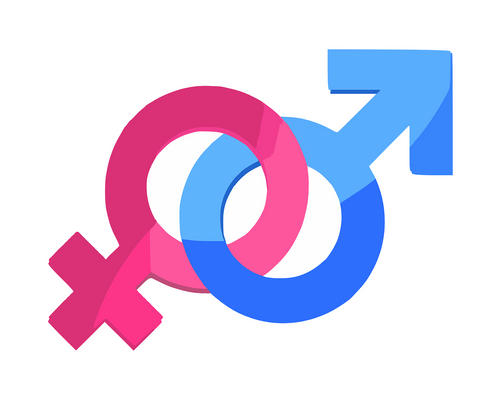7.1.2
Ideology & Belief Systems
Open & Closed Belief Systems
Open & Closed Belief Systems
An ideology is a set of beliefs and values that usually revolve around a core principle, which is essentially the same as a ‘belief system’.


Traditional view of science
Traditional view of science
- Science is the pursuit of facts and objectivity.
- It aims to identify cause and effect relationships that can be reliably tested.
- After the Enlightenment, science replaced religion as the dominant ideology in Western societies.


Replacing religion
Replacing religion
- Science has led to technological and medical advances.
- Some argue that the reasons science has replaced religion as the main belief system is due to its open nature, meaning it is open to questioning whereas religion is sometimes argued to have a closed belief system that is not open to interpretation.


Science as an open belief system
Science as an open belief system
- Popper believes that science has become the dominant belief system in the western world because it has an open system, meaning that it is open to being criticised and challenged.
- He argues that science is built upon ‘falsification’.
- This means that all who believe in science attempt to challenge pre-existing theories and knowledge with the aim of testing its findings.
- If a theory is proven wrong, another theory replaces it.


Science as a closed belief system
Science as a closed belief system
- Kuhn believes that science as a discipline is actually a closed belief system due to the paradigms that dominate it.
- A paradigm is a pre-existing framework that does not encourage freedom of thought.
- Those who follow the guidelines tend to be rewarded, whereas those who question how science should work tend to be ridiculed and marginalised.


Religion as a closed belief system
Religion as a closed belief system
- Many religions claim that they hold the monopoly on the truth.
- This means they believe they have the only correct worldview.
- It is argued that this prevents change, as the traditional values of the religion are not flexible.


Secularisation
Secularisation
- Some sociologists believe that this lack of flexibility has led to a decline in religious beliefs in some societies.
- This process is known as secularisation.
Theoretical Views of Ideology
Theoretical Views of Ideology
An ideology is a set of beliefs and values that usually revolve around a core principle, which is essentially the same as a ‘belief system’.


Theoretical views of ideology
Theoretical views of ideology
- Both science and religion are ideologies as they are sets of beliefs, based around core principles.
- After the Enlightenment, science replaced religion as the dominant ideology in Western societies.
- Within the field of sociology, there are different views on the purpose and relevancy of ideologies generally.


Marxist view
Marxist view
- All ideologies, including science and religion, are manipulated by the ruling class to maintain and reproduce social class inequality.
- They are in place to justify the capitalist system and prevent a working class revolution.
- This feeds into the proletariats false class consciousness.


Feminist view
Feminist view
- All ideologies such as science and religion have promoted patriarchy in society for generations.
- Science and religion become male stream as they defined the male position of power by representing women as weak and impure.


Postmodernist view
Postmodernist view
- They claim any ideology that seeks to explain ‘truth’ is a ‘meta-narrative’ due to the fragmentation of society.
- These meta-narratives are dangerous as they do not allow for individual thought and free will.
1Theory & Methods
1.1Sociological Theories
1.2Sociological Methods
2Education with Methods in Context
2.1Role & Function of the Education System
2.2Educational Achievement
2.3Relationships & Processes Within Schools
3Option 1: Culture & Identity
3.1Conceptions of Culture
3.2Identity & Socialisation
3.3Social Identity
3.4Production, Consumption & Globalisation
4Option 1: Families & Households
4.1Families & Households
4.2Changing Patterns
4.3The Symmetrical Family
4.4Children & Childhood
5Option 1: Health
5.1Social Constructions
5.2Social Distribution of Healthcare
5.3Provision & Access to Healthcare
5.4Mental Health
6Option 1: Work, Poverty & Welfare
6.1Poverty & Wealth
7Option 2: Beliefs in Society
7.1Ideology, Science & Religion
7.2Religious Movements
7.3Society & Religion
8Option 2: Global Development
8.1Development, Underdevelopment & Global Inequality
8.2Globalisation & Global Organisations
8.3Aid, Trade, Industrialisation, Urbanisation
9Option 2: The Media
9.1Contemporary Media
9.2Media Representations
10Crime & Deviance
10.1Crime & Society
10.2Social Distribution of Crime
Jump to other topics
1Theory & Methods
1.1Sociological Theories
1.2Sociological Methods
2Education with Methods in Context
2.1Role & Function of the Education System
2.2Educational Achievement
2.3Relationships & Processes Within Schools
3Option 1: Culture & Identity
3.1Conceptions of Culture
3.2Identity & Socialisation
3.3Social Identity
3.4Production, Consumption & Globalisation
4Option 1: Families & Households
4.1Families & Households
4.2Changing Patterns
4.3The Symmetrical Family
4.4Children & Childhood
5Option 1: Health
5.1Social Constructions
5.2Social Distribution of Healthcare
5.3Provision & Access to Healthcare
5.4Mental Health
6Option 1: Work, Poverty & Welfare
6.1Poverty & Wealth
7Option 2: Beliefs in Society
7.1Ideology, Science & Religion
7.2Religious Movements
7.3Society & Religion
8Option 2: Global Development
8.1Development, Underdevelopment & Global Inequality
8.2Globalisation & Global Organisations
8.3Aid, Trade, Industrialisation, Urbanisation
9Option 2: The Media
9.1Contemporary Media
9.2Media Representations
10Crime & Deviance
10.1Crime & Society
10.2Social Distribution of Crime
Unlock your full potential with Seneca Premium
Unlimited access to 10,000+ open-ended exam questions
Mini-mock exams based on your study history
Unlock 800+ premium courses & e-books